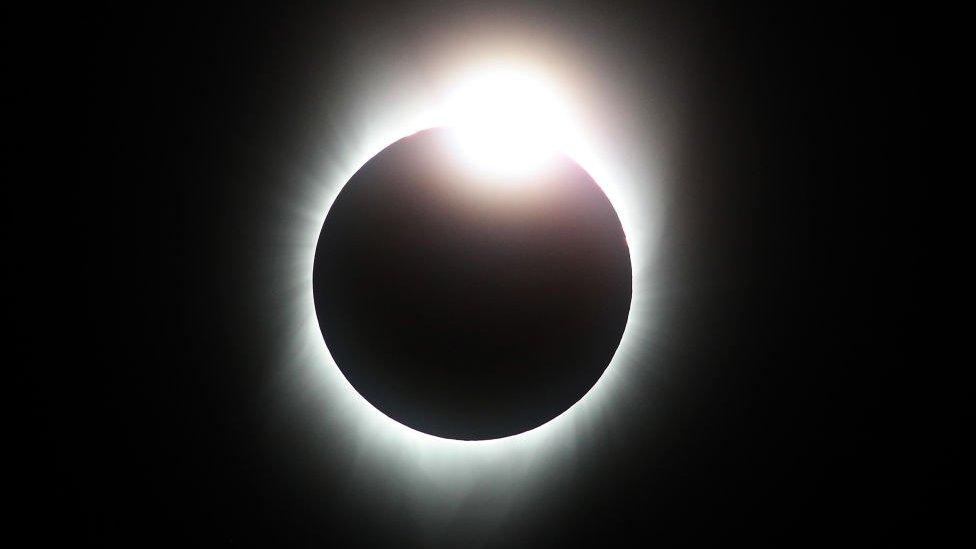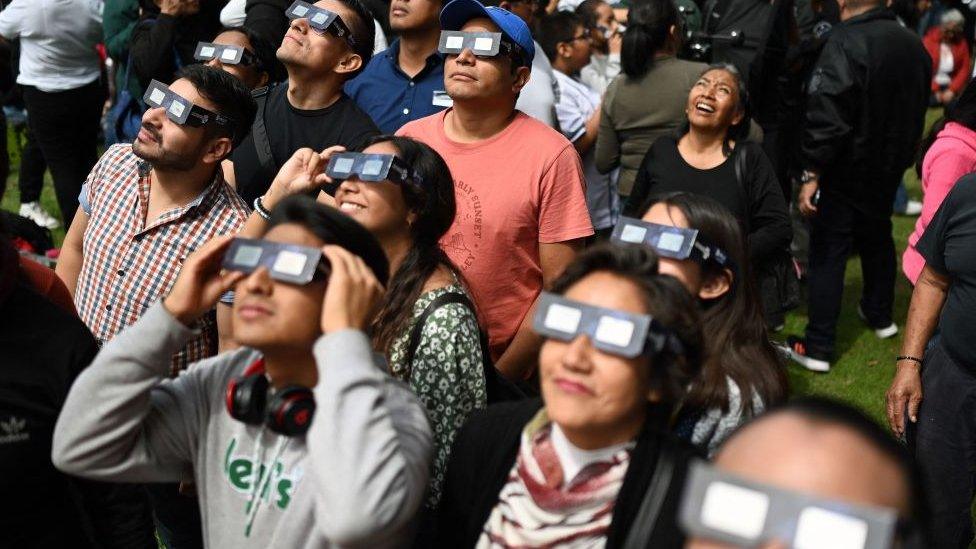Solar eclipse: Nasa will launch three rockets during darkness
- Published
- comments

What can the eclipse teach us about our planet?
During next week's solar eclipse in the USA, Mexico and Canada, US space agency Nasa will launch three rockets into space.
Scientists want to understand what impact total darkness has on the planet - and the eclipse is a perfect time to test this!
A total solar eclipse happens when the Moon aligns with the Sun, covering up it's light. This happens once every two years for different places around the world.
The last total solar eclipse seen seen from the UK was in 1999, and this one will be visible to US, Mexico and Canada, while in the UK it'll just be a partial eclipse - it'll look like the Moon is taking a bite out of the Sun.
Blast-off
Solar eclipse: What causes it and how can you watch safely?
When an eclipse happens, we suddenly move from day into night. This causes a big drop in temperatures, and can sometimes confuse animals into acting how they would at night.
Scientists want to understand how having brief moments of 'night time' affects us on Earth, by testing the air high up in the atmosphere.
By experimenting during the eclipse, Nasa hopes to find out more about how our atmosphere works to keep us alive on Earth.
The team did a similar test last year, when the USA experienced a partial solar eclipse. This is when only part of the Sun is covered by the Moon. This time, because it's a full eclipse, they hope to find some interesting results.
When is the total solar eclipse?

It's very dangerous to look directly into the sun - so people usually watch with special glasses or a pinhole camera
The eclipse starts on 8 April.
According to NASA, it will reach land at 11:07am PDT, around the Mexican Pacific coast.
Over 31 million people will be able to see it! If you live in the UK, sadly you won't be able to see a full eclipse, but you could see a partial one if you live near Manchester, Liverpool, Leeds, Edinburgh, Glasgow and Cardiff.
You can find out more about an eclipse, and how to watch one safely, here.
